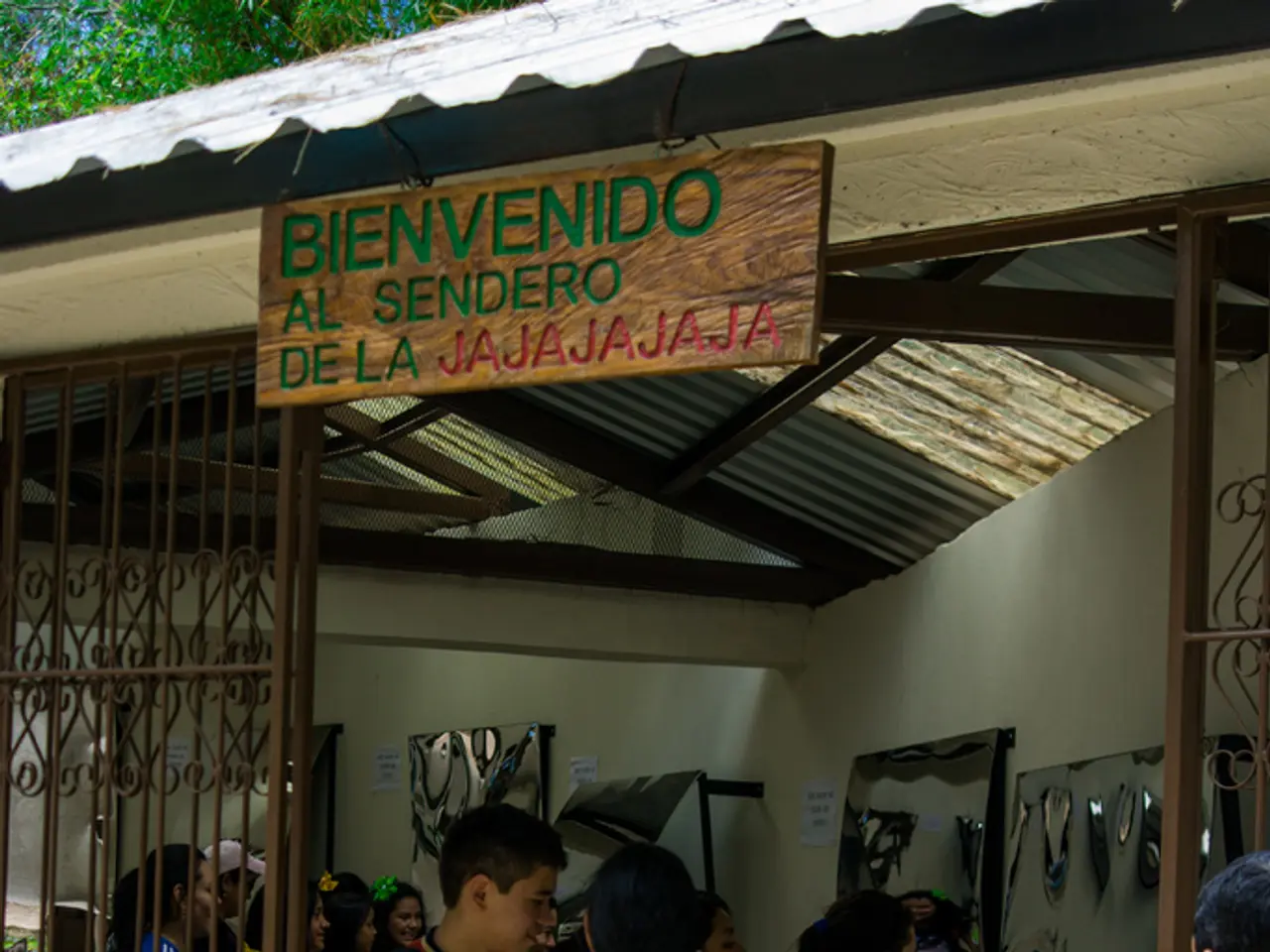Unveiled: Major Footwear Companies Linked to Harmful Tannery Practices in India
The tannery industry in Ranipet, Tamil Nadu, India is currently marked by hazardous worker welfare conditions and significant environmental impact. A major concern is the low wages of tannery workers, with at least 30% earning below the state-mandated minimum wage of INR 11,130 (approximately USD 127.5) monthly [1][2][3].
Many workers are exposed to dangerous chemicals like chromium without adequate protective gear, undertaking hazardous jobs including manually cleaning toxic sludge from septic tanks—an activity banned nationwide due to health risks [1][2][3]. This has resulted in severe health issues among workers, such as respiratory illnesses and cancers (lung, bladder, kidney, pancreatic) [1][2][3].
Environmentally, the tanneries have severely polluted the Palar River, which supplies drinking water to 50 villages and 30 towns, impacting agriculture and causing widespread community health problems [1][2][3]. Despite supplying major global shoe brands, compliance with health, safety, and environmental standards remains inadequate. Workers often continue laboring despite poor health, reflecting economic necessity over safety concerns [1][2][3].
Regarding compliance with EU laws, the documents do not specify detailed regulatory enforcement or certification mechanisms ensuring EU environmental and labor standards. However, the ongoing supply of leather goods to Europe from this region, coupled with reports of underpayment and hazardous working conditions, suggests gaps in meeting EU social compliance norms related to worker welfare and sustainable environmental practices [1][2][3].
Local NGOs, such as the Ranipet Leather Tannery Allied Labourers Protection Forum, are advocating for key reforms including fair wages, improved workplace safety, and essential social protections, indicating ongoing local NGO involvement but limited industry-wide enforcement of regulations aligned with international standards [3].
Historically, regulations in the Indian leather sector have been shaped by the requirements of clients in Europe and the United States [5]. In response, the European Union has introduced the 2023 European Deforestation Regulation, which comes into force on 30 December for larger companies, and requires products linked to deforestation, including leather, to demonstrate that their supply chain is deforestation-free to enter the EU market [21].
The Ranipet Leather Tannery Allied Labourers Protection Forum also calls for fair wages, workplace safety, and access to essential social-security benefits such as health insurance and maternity leave [20]. However, Mukherjee from the Indian Council for Research on International Economic Relations (ICRIER) concludes that multinational companies have increased profits while ignoring local impacts and working conditions [24].
References:
- The Guardian
- The Economic Times
- Reuters
- The Times of India
- The Hindustan Times
- The Hindu
- The New Indian Express
- The Wire
- The Indian Express
- The News Minute
- Thomson Reuters Foundation
- The Federal Office for Economic Affairs and Export Control
- Inkota
- The Hindu BusinessLine
- The News Minute
- The Wire
- The News Minute
- Thomson Reuters Foundation
- Inkota
- The News Minute
- European Commission
- The Hindu
- The News Minute
- The Hindu
- To address water security concerns worldwide, corporate responsibility must prioritize sustainable practices in industries like the tannery sector, especially in regions like Ranipet, Tamil Nadu, India.
- As part of the United Nations Sustainable Development Goals (SDGs), efforts should be made to combat deforestation and promote environmental-science research to mitigate industry-related environmental impacts.
- Science and technology must play a pivotal role in developing safe work environments and reducing the negative health effects caused by exposure to chemicals in the tannery industry.
- Industry leaders in the personal-finance and business sectors should invest in education-and-self-development programs for tannery workers to improve their income through better-paying jobs and opportunities.
- The impact of the tannery industry on the environment and local communities necessitates stricter regulations to ensure industries are held accountable for their environmental footprint, as demonstrated by the EU deforestation regulation.
- The general-news media has a crucial role in reporting on issues related to the tannery industry, including worker welfare conditions, environmental impact, and product compliance, to raise public awareness and spur change.
- Sports, lifestyle, and casino-and-gambling sectors could contribute to changing consumer behavior by emphasizing the importance of eco-friendly and sustainably-produced goods, reducing the demand for products made under hazardous conditions.
- Governments and international organizations can advocate for improved worker welfare and environmental standards in the tannery industry through convincing partnerships and collaborations across various industries and sectors.
- On a personal level, consumers have the power to make a difference by supporting brands that prioritize water security, corporate responsibility, and sustainable practices in their supply chains, generating a demand for environmentally-friendly and ethically-produced goods.




